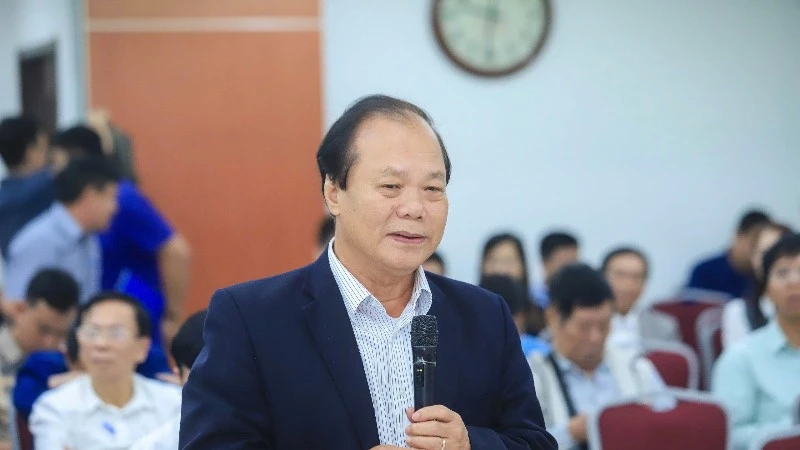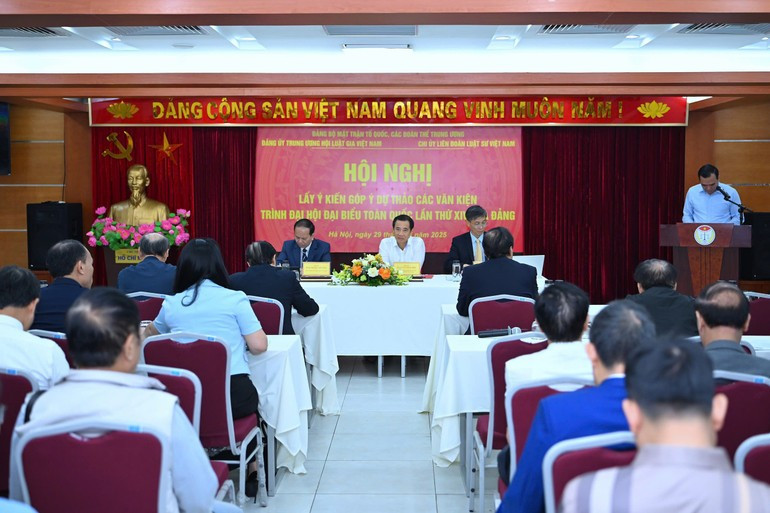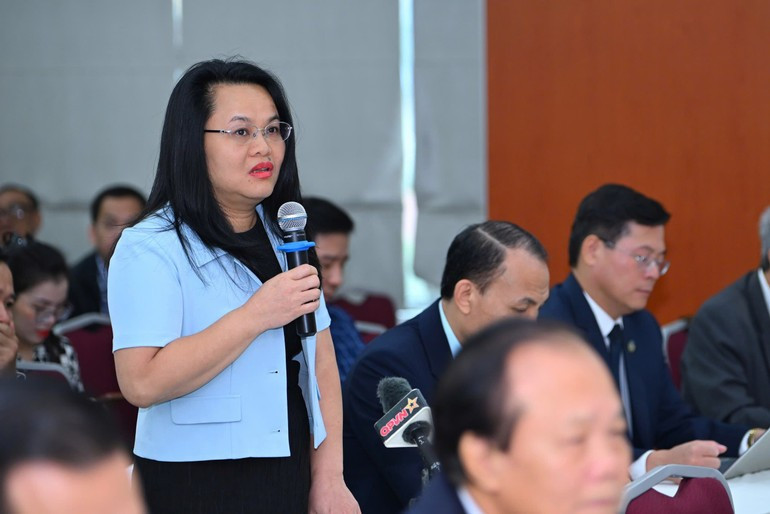Legal bottlenecks removed to foster rapid and sustainable socio-economic development
The collection of public feedback on draft documents for the upcoming 14th National Party Congress is a vital political task. Many jurists and lawyers have offered deeply constructive opinions, aiming to build a robust legal framework that embodies the principles of a socialist rule-of-law state and paves the way for socio-economic development.

Focusing on clearing legal bottlenecks
According to most jurists and lawyers attending the consultation conference on the draft documents for submission to the 14th National Party Congress — organised by the Viet Nam Lawyers’ Association in late October in Ha Noi — the draft documents have been prepared meticulously and seriously. They ensure continuity while also introducing innovative and groundbreaking elements that reflect the Party’s strategic vision and creative thinking as the country enters a new stage of development.
However, participants also pointed out a several points that need to be clarified and specified further, particularly regarding institutional improvement — a key task for national development that still faces several bottlenecks.
Addressing the topic of the rule-of-law state, which has drawn much public attention, Professor Phan Trung Ly, former Chairman of the National Assembly’s Committee on Legal Affairs, noted that institutional improvement is both appropriate and highly significant, as it lays a solid foundation for economic, cultural, and social progress. Nevertheless, he stressed that this matter should be further emphasised and expanded upon, especially in defining future roles and tasks in advancing Viet Nam’s rule-of-law state.

The first major bottleneck, according to experts, lies in legislative thinking — law-making remains heavily influenced by administrative management rather than by a mindset of institutional design and development facilitation. Many regulations still tend to “legalise” management measures instead of creating open legal frameworks that encourage innovation, integration, and digital transformation.
Another notable obstacle concerns legislative procedures and technical quality. The processes of agenda-setting, drafting, appraisal, and verification often lack scientific rigour. The recurring situation of “making laws while simultaneously amending laws” undermines the stability of the legal system.
Additionally, institutional coordination among state bodies in the legislative process remains weak, as does the mechanism for public consultation and policy feedback, which often remains superficial and lacks academic depth.
Professor Ly observed: “To build a modern rule-of-law state, Viet Nam needs a comprehensive renewal in legislative thinking and the lawmaking process.”
Addressing these bottlenecks is key to removing structural constraints and setting clear objectives and programmes, enabling the political system to operate under a new model that is more efficient, effective, and responsive.
Improving institutions to foster rapid and sustainable socio-economic development
According to Professor and Doctor of Law Phan Trung Ly, the draft documents for this Congress mark an important step forward by emphasising the need to “accelerate the comprehensive completion of institutions for rapid and sustainable national development.” In this regard, the political institution plays a pivotal role, the economic institution serves as the core, while institutions in other sectors remain of great significance.
He noted that the draft also requires efforts to “continue improving the overall organisational model of the political system toward streamlining and efficiency; expanding development space; and addressing properly the relationship among the State, the market, and society, so that the market truly plays a decisive role in mobilising and allocating resources.”
To realise these objectives, Professor Ly stressed, the key lies in renewing legislative thinking, as the quality of legislation determines the quality of the institution and the capacity of a rule-of-law state.
The renewal of legislative thinking, he added, must rest on three pillars. The first is a mindset of development and institutional creativity, viewing law not only as a tool for regulation but also as an “institutional driver” that promotes innovation, unlocks resources, ensures fairness, and protects human and citizen rights in the digital era. The second pillar is a mindset of rule-of-law and power control, shifting from “administrative command management” to “governance by law”, ensuring that all powers are subject to clear, transparent, and accountable legal mechanisms. The third pillar concerns innovation in law-making methods and procedures, moving toward a professional, modern administration that drastically reduces bureaucracy and transitions from a “permit-granting” approach to a “service-oriented” one.

Le Thi Mai Phuong, Secretary of the Party Cell of Phap Ly (Legal) Journal and Deputy Director of the Institute of Legal and International Business Sciences, agreed on the necessity of renewing legislative thinking. She emphasised the importance of “strategic autonomy”, affirming that the rule of law is the “backbone of national resilience,” where all policies, reforms, and development initiatives operate transparently, responsibly, and under effective oversight.
Commenting on the draft Political Report, Phuong proposed emphasising the goal of “building a modern, integrated, transparent, and accountable market economy institution,” while clarifying the meaning of a “socialist-oriented market economy” in the new context.
She suggested that the growth model should be based on three key pillars: science, technology, and innovation; development of regional growth poles and inter-regional linkages; and enhancement of institutional capacity.
Phuong also recommended focusing on priorities such as perfecting the legal framework on property ownership, use, and disposition rights; reforming state governance toward “regulation through law and digital data”; and strengthening “strategic autonomy.” These, she said, should be consistently highlighted from the perspective of building a strong socialist rule-of-law state that fosters development.
The 14th National Congress of the Communist Party of Viet Nam is a particularly significant political event. With their responsible and practical contributions grounded in legal expertise and real-world insights, jurists and lawyers across the country are helping to perfect Viet Nam’s institutional framework and chart the nation’s path toward sustainable development in a transformative new era.








